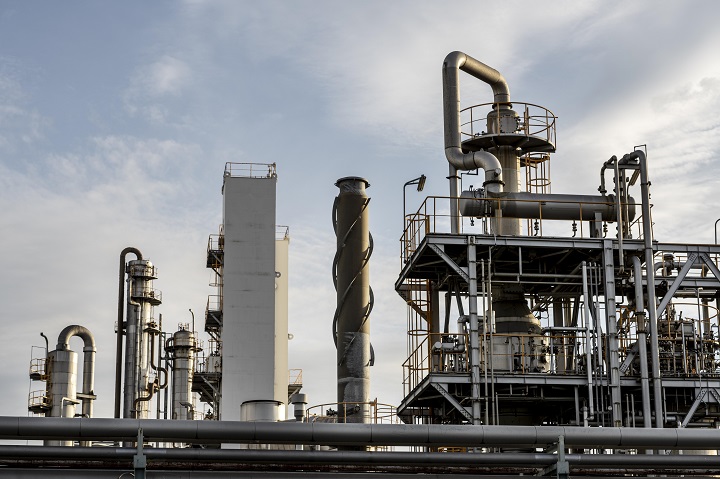 The oil and gas industry operates within complex, high-pressure environments where every single component, down to the humblest pipe and fitting, is crucial. The industry relies heavily on oil pipes and fittings to safely and efficiently transport these precious resources. Consequently, the role of oil pipe suppliers is of paramount importance. They ensure that the correct pipes and fittings can withstand operational rigors and environmental factors while ensuring uninterrupted, secure, and efficient transportation of oil and gas.
The oil and gas industry operates within complex, high-pressure environments where every single component, down to the humblest pipe and fitting, is crucial. The industry relies heavily on oil pipes and fittings to safely and efficiently transport these precious resources. Consequently, the role of oil pipe suppliers is of paramount importance. They ensure that the correct pipes and fittings can withstand operational rigors and environmental factors while ensuring uninterrupted, secure, and efficient transportation of oil and gas.
The Pipe Fitting Triad: Application, Environment & Size
Choosing the right pipe fittings is no less than solving a jigsaw puzzle. Three pivotal factors guide the decision-making process:
- Application Process: This primarily involves understanding the content the pipes will carry. High-pressure pipelines, for example, require sturdy fittings to withstand the pressure.
- Environmental Conditions: External influences such as soil conditions, corrosive elements, and ambient temperature significantly impact the durability of the pipes and fittings.
- Pipe Sizing: The flow rate and volume of oil or gas requiring transportation dictate the pipe size and, consequently, the type of fittings required.
Alloys and Elements: A Deep Dive into Pipe Fitting Materials
Navigating the labyrinth of pipe fitting materials may seem daunting at first, but understanding their unique properties and applications makes it easier:
-
Steel Pipe Fittings
Steel pipe fittings are made primarily from steel, an alloy of iron and carbon, with sometimes other elements to achieve desired properties. These fittings play a crucial role in various industrial applications, especially in the oil and gas sector, because of their numerous advantageous properties:
- Strength and Durability: Steel is known for its high strength. That makes steel pipe fittings extraordinarily durable and capable of withstanding high pressures and loads without deformation.
- Corrosion Resistance: By alloying steel with elements such as chromium, a protective layer is formed on the surface, which helps reduce corrosion.
- Heat Resistance: Steel can withstand high temperatures without losing its structural integrity.
- Versatility: Steel pipe fittings come in various shapes and sizes and can be custom-made to meet specific requirements. They are ideal for a wide range of applications.
Carbon Steel Pipe Fittings
Carbon steel pipe fittings comprise steel, with carbon being the main interstitial alloying constituent. They get the categorization as low, medium, and high carbon steel fittings based on carbon content.
- High Tensile Strength: Carbon steel, especially in higher concentrations, has high tensile strength, capable of handling heavy-duty applications.
- Cost-Effective: Compared to other materials like alloy steel, carbon steel fittings are usually more economical without significant compromise on strength.
- Weldability and Machinability: These pipe fittings are easy to weld and machine, making them versatile for various applications and allowing for more complex configurations and designs.
- Temperature Tolerance: While not as heat-resistant as some alloy steels, carbon steel pipe fittings can still handle elevated and fluctuating temperatures.
Chromium
Chromium-enhanced fittings provide excellent resistance to corrosion, making them perfect for marine applications.
Forged Steel
Known for its exceptional strength and integrity, forged steel is helpful in high-pressure and high-temperature scenarios.
Nickel and Titanium
These are used in particular circumstances owing to their resistance to extreme temperatures and corrosive substances.
If you’re unable to understand the complexities of pipe fittings, it will be great if you consult with oil pipe suppliers.
Quality Matters: The Ironclad Pledge of Oil Pipe Suppliers
The oil and gas sector must work in sync – a single misstep can bring the entire operation to a halt. Here’s why reputable oil pipe suppliers strive to deliver the highest quality pipes:
- Safety: The slightest compromise in pipe quality can lead to leaks, causing catastrophic environmental and safety hazards.
- Longevity: Premium quality pipes promise longevity, ensuring seamless operation over extended periods without requiring frequent replacements.
- Efficiency: Superior quality pipes resist corrosion and wear, leading to optimal flow rates and minimizing energy wastage.
- Regulatory Compliance: Top-notch pipes meet industry standards and regulations, safeguarding against penalties and legal complications.
- Cost-Effective: Although high-quality pipes require a substantial initial investment, they save costs in the long run by minimizing maintenance, replacement, and downtime costs.
Partner with Excellence in Piping Solutions
The oil and gas industry waits for no one. Equip yourself with the best pipes and fittings to ensure safety, efficiency, and compliance. There’s no room for second-guessing. Choose International Pipe, one of the best oil pipe suppliers – your source for high-caliber solutions tailored to your unique requirements.
Partner with us today for a seamless, unyielding performance that keeps you ahead of the piping game. Click on our website to get started. After all, your project success is non-negotiable!
